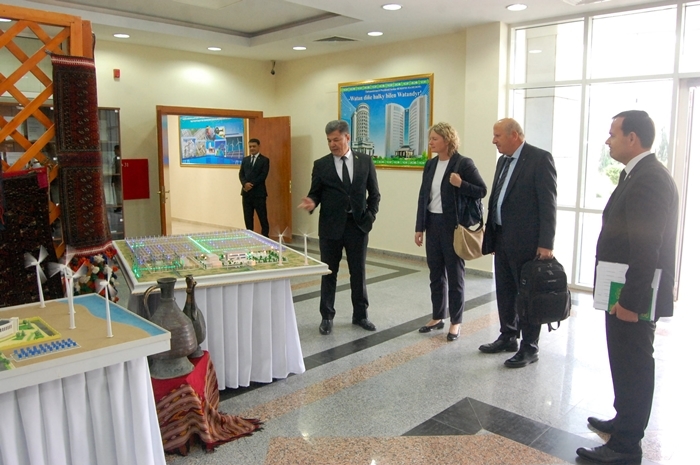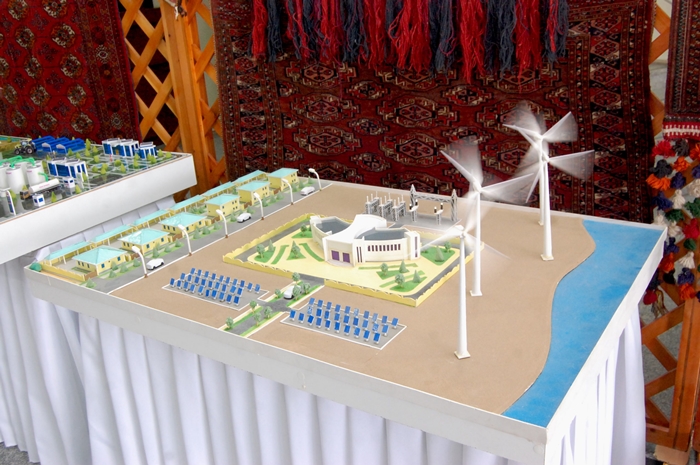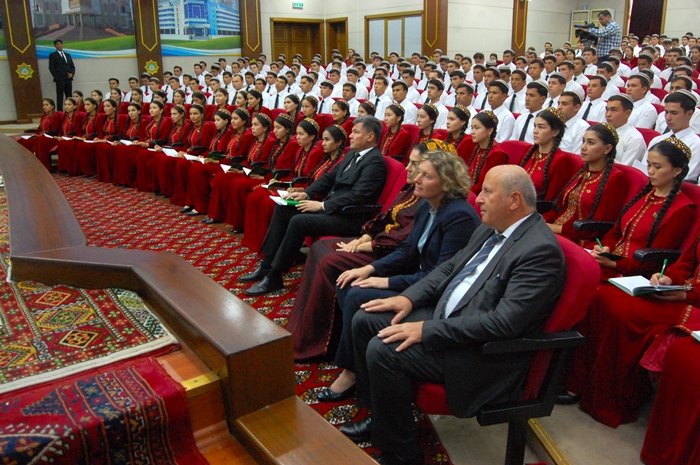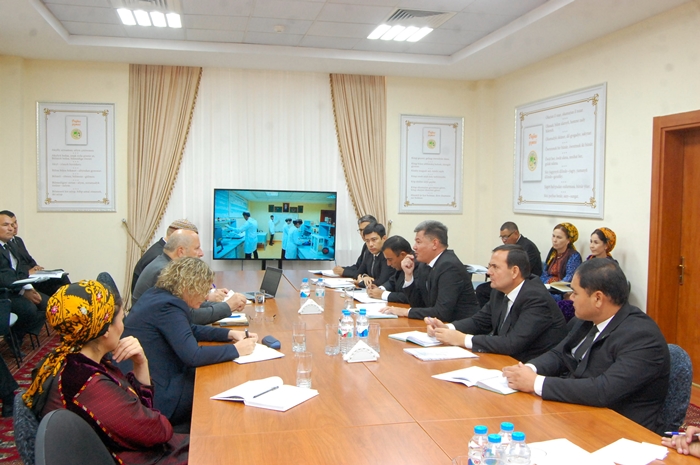 The experts of the European Union Support to Sustainable Energy Connectivity in Central Asia (SECCA) Project Paata Janelidze and Ilze Purina visited Turkmenistan last week and held a series meetings in Ashgabat and Mary with representatives of the Ministry of Energy, the Ministry of Education, the State Energy Institute of Turkmenistan, and the Turkmengaz State Concern.
The experts of the European Union Support to Sustainable Energy Connectivity in Central Asia (SECCA) Project Paata Janelidze and Ilze Purina visited Turkmenistan last week and held a series meetings in Ashgabat and Mary with representatives of the Ministry of Energy, the Ministry of Education, the State Energy Institute of Turkmenistan, and the Turkmengaz State Concern.
According to SECCA press release, improvement of energy efficiency, introduction of renewable energy sources into power generation system and possibilities for methane emissions reductions came under discussions.
Turkmenistan has estimated total 666 GW potential in renewable energy, SECCA says.
The greatest share of this potential is with the solar energy estimated at 655 GW, followed by wind and hydropower. The development of this sector, along with reduction of methane emissions (from energy, agriculture and wastes) would significantly contribute to the environmental protection and energy supply, as well as fulfilment of the country’s climate targets, i.e. achieving zero growth of greenhouse gas emissions starting in 2030, and significant reductions of emissions in the longer term.
In view of this, the Turkmen government has undertaken first important steps towards transition to more sustainable energy system.
The Law on Renewable Energy Sources was adopted in 2021 with a key focus on development of RE and provision of major incentives for RE projects. The government developed a new Law on Energy Efficiency and Energy Saving, which is currently under consideration of the Parliament of Turkmenistan.
Additionally, the government plans to continue exploring the possibility of green and blue hydrogen production in the country. The accession to the Global Methane Pledge is also on the political agenda.
During the visit to Turkmenistan, SECCA experts conducted lectures in Mary for the students of the State Energy Institute on energy saving, EE and RE.
Organization of the European Union Sustainable Energy Days in Turkmenistan and public activities to raise awareness on EE and RE was also a part of the discussions with the Ministry of Energy, the Ministry of Education, and the State Energy Institute.
Opportunities for cooperation on issues of reduction of methane emissions examined during the meeting with Turkmengaz.
To achieve sustainable energy in Central Asia (CA), the EU promotes economic cooperation and connectivity in the region. In 2022, the EU launched a four-year project ‘Sustainable Energy Connectivity in Central Asia ‘(SECCA). The mission of the SECCA Project is to promote a more sustainable energy mix in the Central Asia region in line with EU best practices.
///nCa, 22 September 2023
#Turkmenistan, #SECCA, #sustainable_energy,


